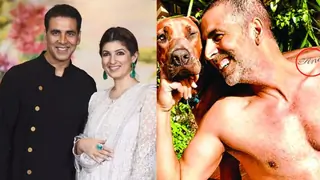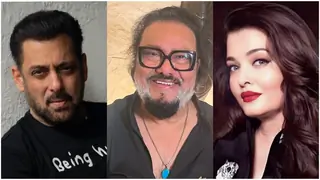A soaring kite
If it is a Hindi film about youth, it is about city-centric aspirations. Eye damage is not ruled out, with candyfloss visuals of fashion-suffused college campuses blasting every frame. In his new film Kai Po Che,Abhishek Kapoor, who earlier made Rock On!! (2008), moves far away from that formula. There are no college campuses, no romantic hook-ups that lead to weepy break-ups, and no choreographed songs. There is no bathos.
Kapoor turns Chetan Bhagat's best-seller The 3 Mistakes of My Life, about three small-town men who have reached adulthood without having quite grown up, into a mature life-cycle drama. The three men have limited means, but they dream big. They are progressive in mind, but are trapped in their situations. They are products of anti-entrepreneurial, custom-ridden India. In a nutshell, they are negotiating the real India. Refreshingly, Kapoor convinces us their lives can make drama as engaging as that of well-dressed city animals.
It is a simplistic story—naive even, in trying to tackle some big questions. How does a Hindutva-espousing political party get young recruits, and then turn them into zealots? Can a college graduate be entirely oblivious to the implications of social perceptions and political forces around him? Can cricket really be the cure to all our differences? The film skims over these questions. None of the four main characters—three men and a woman—are graphic or round. Yet, the film triumphs over the shallow story with well-executed cinematic details.
Kapoor is many notches more mature in handling his material than in Rock On!! which was an equally thin story. He packs in a lot in 120 minutes with sharp editing. For a film-making culture so heavily dependent on overt emotions, it is a tricky task for a director to register emotional gravity without succumbing to melodrama. Kapoor succeeds in finding the balance. Kai Po Che has the predictable upward curve of set-up, conflict, climax and a resolution—neatly and efficiently built up.
We meet Govind (Raj Kumar Yadav), Ishaan (Sushant Singh Rajput), Omi (Amit Sadh) and Vidya (Amrita Puri) in mofussil Gujarat. It is the late 1990s, going into early 2000s. The town's first shopping mall is being constructed. The Gujarat earthquake ravages the town, divisive communal politics brews in the political shakhas, and it all culminates catastrophically with the 2002 Godhra riots. Things beyond their control are altering the lives of Govind, Ishaan and Omi. In Gujarati, "kai po che" is a celebratory phrase used during the kite festival, and it means, "I have cut (the kite)."
The three boys are completely different from each other. Govind is the toiler, the balance sheet geek. He goads the other two to make something of their wasted graduate life. He looks far ahead without losing sight of the immediate future. Ishaan is mercurial; he was a cricketer who never made it big. Omi has the most influential lineage among the three. Son of the local temple priest, he has the favours of his maternal uncle, a local saffron politico. Vidya, Ishaan's sister, caught between the differences between her brother and father, is the family's emulsifier. She is also Govind's girlfriend, a fact unknown to Ishaan.
The boys open a sports store and cricket coaching academy in a run-down godown provided by Omi's powerful uncle. They dream of a mall store and take a loan from him. Meanwhile, Ishaan is obsessed with coaching a local boy Ali, a gifted striker of the red ball, to national glory. This is Ganguly's India in cricket—an upbeatness about young India spills over from the cricket pitch and permeates the national mood. Cricket interludes are crucial to the film's narrative, especially the second Test match between Australia and India during Australia's 2001 India tour. At Kolkata's Eden Gardens, VVS Lakshman hit a knock of 281 and India won the match by 171 runs. The match's outcome temporarily soothes growing tensions between Ishaan and Omi who believes the local political party is unsympathetic to human concerns, and articulates his anger. The first obstacle to their dream is the earthquake. The second, a combination of interpolating circumstances, both personal and political, boils over to a dire end when the character, friendship and the will of the boys to hold on to their goals are tested.
The film is richer because of its technical finesse. Hitesh Sonik, who has created the background music, is a brilliant new find. The music is integrally part of the overall sound design. Music is sparsely used in the narrative, but the notes linger. Amit Trivedi's music to the songs have variety as well as eclecticism, and like most of what the composer makes, it does not sound like jaded fusion. The cinematography byAnay Goswami is free of cosmetic gloss.
Kapoor extracts good chops out of his actors. Rajput is a television actor, and this is his first film. He lends charisma and restraint to the film's most colourful character. Sadh, although not consistently in character, delivers some powerfully enacted moments. Puri, seen last as a convincingly enacted bumbling outsider among Delhi's fashion cognoscenti in the romcom Aisha (2010), makes Vidya warm and believable. Raj Kumar Yadav excels in his role as Govind. He is a staggering new talent in Hindi cinema. Govind's awkwardness, his middle-class obsession to save money and stiff exterior are eloquently articulated by Yadav. These are not characters you would really know, because the story does not allow you to, but Kapoor's clever handling of scenes give them away just a little bit more.
A well-crafted mass entertainer about sweeping emotions rarely comes along. Kai Po Che is one of them.
Kai Po Che releases in theatres on Friday.























































18